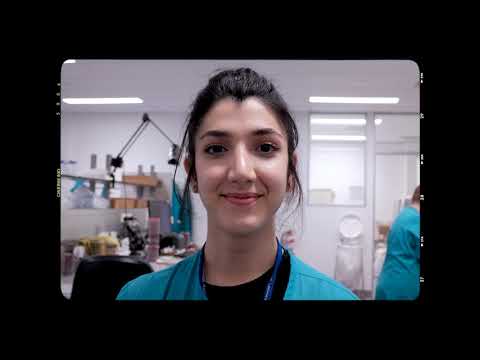How Much Does a Medical Office Assistant Make?
Contents
- Introduction
- What is a medical office assistant?
- The duties of a medical office assistant
- The skills required to be a medical office assistant
- The education and training required to be a medical office assistant
- The certification required to be a medical office assistant
- The job outlook for medical office assistants
- The salary of a medical office assistant
- The benefits of being a medical office assistant
- The drawbacks of being a medical office assistant
How much does a medical office assistant make? This is a question that many people have, and the answer may surprise you. medical office assistants can make a very good salary, and it all depends on experience and location.
Checkout this video:
Introduction
Medical office assistants are in high demand due to the increasing complexity of the healthcare system. They play a vital role in supporting the day-to-day operations of medical offices and clinics. As the healthcare industry continues to grow, so does the demand for qualified medical office assistants.
Medical office assistants are responsible for a variety of tasks, including scheduling appointments, verifying insurance coverage, billing patients, and handling customer service inquiries. They may also be responsible for maintaining medical records and filing insurance claims.
The duties of a medical office assistant vary depending on the size and type of medical practice. In smaller practices, medical office assistants may be responsible for a wider range of tasks. In larger practices, they may be responsible for more specialized tasks.
The salary of a medical office assistant varies depending on experience, education, location, and other factors. The median annual salary for medical office assistants was $34,800 in 2017, according to the Bureau of Labor Statistics (BLS).
The BLS projects that employment of medical office assistants will grow by 29 percent from 2017 to 2026, much faster than the average for all occupations. This growth is due to the increasing demand for healthcare services as the population continues to age.
What is a medical office assistant?
A medical office assistant is a professional who provides support to the administrative staff of a medical facility. This position may include working with patients to schedule appointments, manage their records, and provide them with information about their health condition. Medical office assistants may also be responsible for handling billing and insurance claims.
The duties of a medical office assistant
The duties of a medical office assistant can be divided into three main categories: clerical, clinical, and administrative.
Clerical duties include tasks such as answering phones, scheduling appointments, and greeting patients. Clinical duties may involve taking medical histories, measuring vital signs, and helping prepare patients for exams. Administrative duties may include handling insurance forms and coding Medical records
The exact duties of a medical office assistant will vary depending on the size and type of medical facility in which they work. In a small office, a medical office assistant may be responsible for all three types of tasks. In a larger facility, they may specialize in one area or another.
Salaries for medical office assistants vary depending on experience, education, location, and the type of employer. According to the Bureau of Labor Statistics, the median annual salary for medical office assistants was $32,480 in May 2016.
The skills required to be a medical office assistant
Medical office assistants are in high demand due to the increasing number of medical facilities and the aging population. assistants perform a variety of administrative tasks such as scheduling appointments, maintaining medical records billing and coding insurance forms, and handling correspondence. In order to be successful in this field, one must have excellent communication skills, both written and verbal, as well as strong organizational skills. Additionally, experience with computers is essential as most medical office assistants will be expected to use various software programs on a daily basis. While most medical office assistants have at least a high school diploma, some employers may prefer candidates who have completed a postsecondary medical office assistant training program.
The education and training required to be a medical office assistant
The education and training required to be a medical office assistant can vary depending on the employer. Some medical office assistants may only need a high school diploma or its equivalent, while others may need to complete postsecondary education or on-the-job training. Many employers prefer to hire medical office assistants who have completed a postsecondary education program in medical office administration or a related field.
The certification required to be a medical office assistant
There are several paths you can take to enter the medical assisting field. You can receive on-the-job training, although this is becoming less common, or you can attend a vocational school or community college that offers a certificate or diploma program. You can also earn an Associate’s Degree in Medical Assisting. Although not required, certification as a Certified medical assistant (CMA) through the American Association of Medical assistants may improve your job prospects.
The job outlook for medical office assistants
The job outlook for medical office assistants is quite positive. In fact, the Bureau of Labor and Statistics projects that the occupation will grow by 21% from 2016 to 2026. This is much faster than the average occupation, which is projected to grow by only 7% during the same time period. The reason for this rapid growth is largely due to an aging population and the increasing number of people with chronic health conditions. As a result, there will be a greater need for medical office assistants to help manage these patients’ medical records and appointments.
There are a number of factors that can affect how much a medical office assistant makes. These include the geographic location, the size of the practice, and the type of insurance that is accepted. In general, however, medical office assistants make an average salary of $16 an hour, or $33 thousand per year.
The salary of a medical office assistant
Medical office assistants play a vital role in the smooth operation of any healthcare facility. They are responsible for administrative tasks such as scheduling appointments, maintaining medical records, billing and coding, and handling insurance claims. They also provide support to doctors and nurses by performing clinical tasks such as taking vitals, administering injections, and drawing blood. With the aging of the Baby Boomer generation and the increasing complexity of the healthcare system, the demand for medical office assistants is expected to grow much faster than average in the coming years.
As of May 2019, the median annual salary for medical office assistants was $34,610. The top 10% of earners made more than $50,380, while the bottom 10% earned less than $24,280. Salaries vary depending on experience, location, and employer. Medical office assistants in private practices or small clinics tend to earn less than those working in large hospitals or specialized facilities. Those with experience or advanced certification can earn higher salaries as well.
The benefits of being a medical office assistant
The benefits of being a medical office assistant are numerous. In addition to a good salary, medical office assistants enjoy good job security and the opportunity to work in a variety of settings. They also have the satisfaction of knowing that they are helping to keep the medical profession running smoothly.
The drawbacks of being a medical office assistant
Being a medical office assistant can be a very rewarding career, but it does have its drawbacks. One of the biggest drawbacks is the pay. Medical office assistants make an average of $30,000 a year, which is significantly less than other medical positions such as doctors and nurses. Additionally, medical office assistants often have to work long hours, including evenings and weekends. This can make it difficult to maintain a work-life balance. Another drawback of being a medical office assistant is the high level of stress that comes with the job. Medical office assistants are responsible for managing patients’ records, scheduling appointments, and handling customer service inquiries. This can be a lot of responsibility for one person, and it can be very stressful. Lastly, another drawback of being a medical office assistant is that the job can be repetitive and monotonous.





